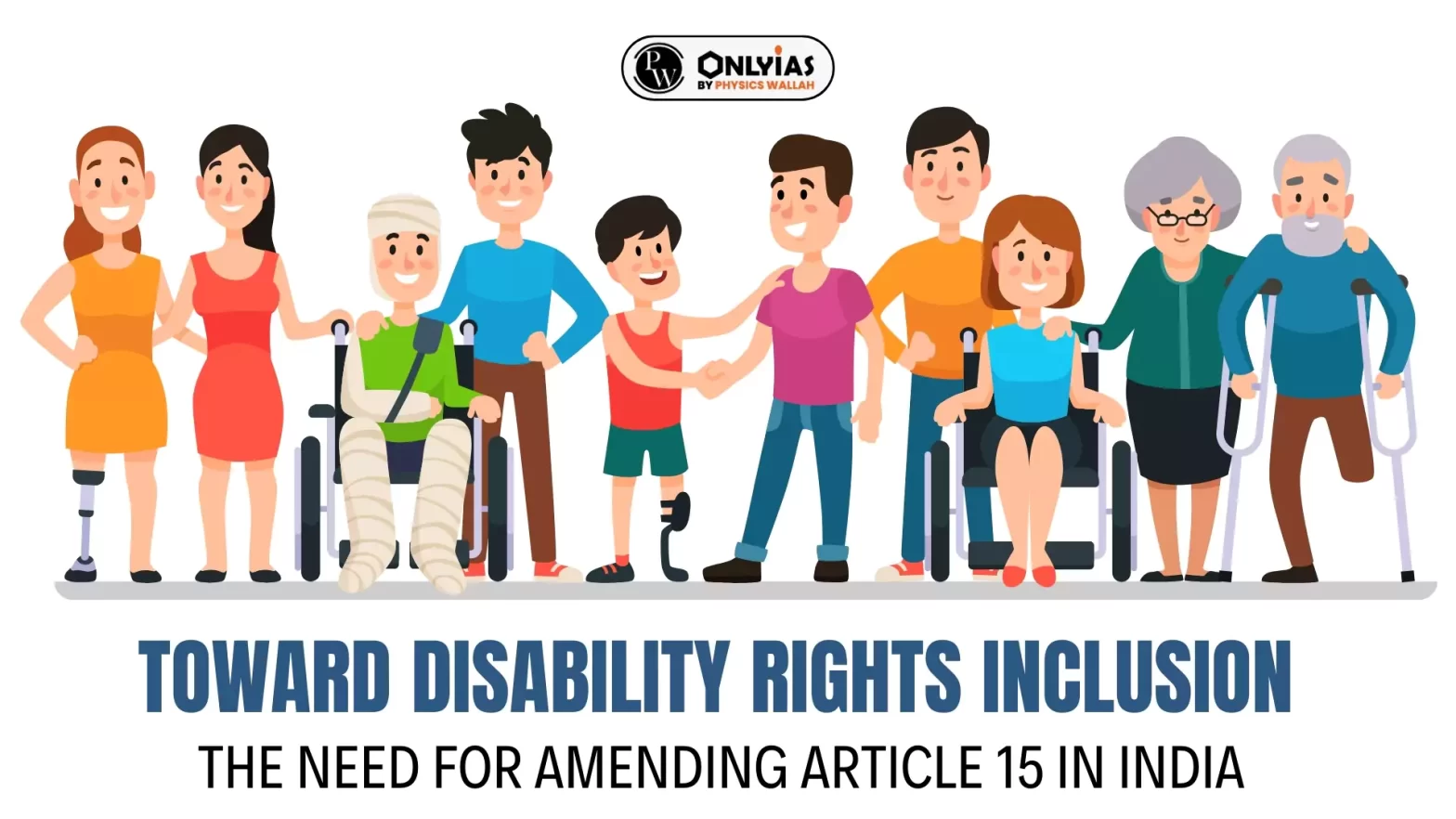Context
Amidst election manifestos, the proposal to include disability as a distinct ground for discrimination under Article 15 of the Indian Constitution has garnered attention.
| Relevance For Prelims: Indian Constitution, Supreme Court, Fundamental Rights (Article 12-35) , United Nations, Rights of Persons with Disabilities, UN Convention on the Rights of Persons with Disabilities (UNCRPD), and National Centre for Promotion of Employment for Disabled People (NCPEDP) and the National Disability Network (NDN).
Relevance For Mains: Navtej Singh Johar vs Union of India, Challenges associated with Disabled people. |
Enroll now for UPSC Online Course
The Demand to Amend Article 15 for Disability Rights in India
- Historical Context: Disability rights movement has long demanded a constitutional amendment of Article 15 to include disability as a specific ground for discrimination.
- International Recognition: United Nations Committee on the Rights of Persons with Disabilities (UNCRPD) reiterated this demand in 2019.
- Despite strides in disability rights globally, India has not addressed this omission.
- Ratification and Legislative Action: India ratified the Convention in 2007 and enacted the Rights of Persons with Disabilities Act in 2016.
-
- While no amendment was made to Article 15 in response to the ratification.
- Rights of Persons with Disabilities Act: Section 3 of the Act provided that no person with disabilities shall be discriminated against on grounds of disability.
- Limitations of Equality Provision in the Act: The Act provides limited equality and leaves scope for discriminatory actions under the guise of “legitimate aim.”
Why Do We Need to Amend Article 15 for Disability Rights in India?
- Need For Constitutional Amendment: A constitutional amendment would elevate the right against discrimination for persons with disabilities from a statutory to a constitutional right.
- Constitutional Principles: Constitution of India embodies principles of liberty, equality, and fraternity, restructuring relationships between individuals and the state.
- Rectifying Historical Injustice: Inclusion of disability under Article 15 would rectify historical injustice and address social hierarchies.
Judicial Precedent and Limitations
- Expansion of Article 15: In Navtej Singh Johar vs Union of India (2018), Supreme Court extended Article 15 protection to ‘sexual orientation’ as analogous grounds.
- Analogous Protection: Treating disability as analogous may extend Article 15 protection but does not replace the need for a constitutional amendment.
- Challenges of Analogous Grounds: Analogous grounds approach burdens litigators and overlooks systematic marginalization faced by persons with disabilities.
Way Forward: Political Will and Advocacy for Disability Rights in India
- Political Will for Disability Rights: Promises in manifestos of Congress and CPI(M) indicate political will to address demands of the disability rights movement.
- Advocating Political Prioritization: National Centre for Promotion of Employment for Disabled People (NCPEDP) and National Disability Network (NDN) launched a manifesto urging political parties to prioritize issues of disabled community.
- Shift in attitudes: Furthermore, it signals a potential shift in political attitudes towards addressing the longstanding demands of the disability rights movement.
Enroll now for UPSC Online Classes
Conclusion
A constitutional amendment to include disability under Article 15 is crucial for elevating the rights of persons with disabilities and rectifying systemic injustices.
Also Read: Rights Of Consumers With Disabilities
![]() 23 Apr 2024
23 Apr 2024
